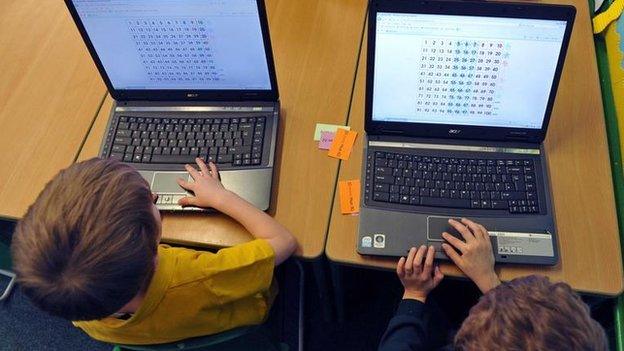£1.3m to expand school computer coding clubs in Wales
- Published
Education Secretary Kirsty Williams and Iolo, 10, on computer skills
Schools are to be given £1.3m to set up clubs to teach computer coding.
The investment over five years is part of the Welsh Government's £100m to raise school standards over the assembly term.
Education Secretary Kirsty Williams said she wanted all pupils to have the opportunity to learn about and get involved in coding as the importance of digital skills continues to grow.
It is estimated there will be 100,000 new coding jobs by 2020 in the UK.
The Welsh Government said there are currently about 1.5 million jobs in the digital sector in the UK, 400,000 of which involve coding.
"Code is part of almost everyone's life," said Ms Williams. "When we check out social media, access an app or computer we are using systems created through code. It is an essential building block of our modern world and I want to make sure as many of our young people have knowledge of it as they develop their digital skills."
The investment aims to expand the number of code clubs for learners aged three to 16 from the current number of 300.
Three years ago experts warned schools in Wales were in danger of being left behind in terms of digital education.
The new national curriculum, expected to be up and running by 2021, includes a recommendation computer programming and IT be given the same importance as literacy and numeracy.

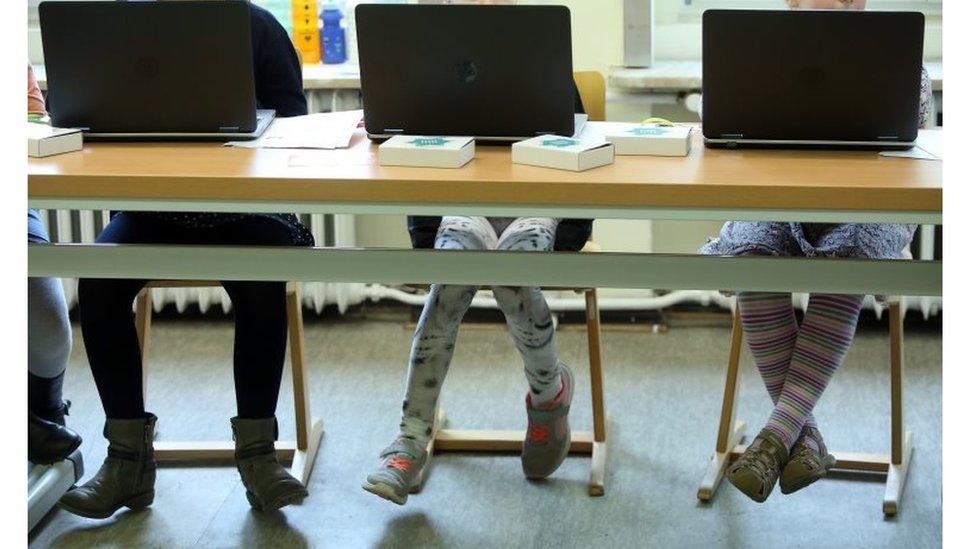
WHAT IS CODING?
Computer code is a set of rules and instructions, made up of words and numbers
When you put them in the right order, it will tell your computer what to do
Code is what makes it possible to create computer software, apps and websites
The apps on your phone, Facebook and this page you're reading is all made with code

Ms Williams made the announcement at Llandough Primary school in the Vale of Glamorgan, where computer skills are already taught throughout the curriculum from nursery to year six.
But the school headmaster hopes the coding club it plans to open from September will add another dimension to learning.
"We are using coding on a daily basis and we're engaged with lots of different companies who have helped us set up coding in our school," said Mark Ellis.
"The curriculum itself is bringing coding into our school as well, but we are going to look to the wider community now and we want to look at our grandparents, our parents, and younger siblings coming in using our technologies to be able to have coding experiences and use them in the wider world."
He explained the club model would offer flexibility and involve families so they can play a full part.
"There is a lack of understanding for some parents who have not seen what coding is and what it brings to children," he said.
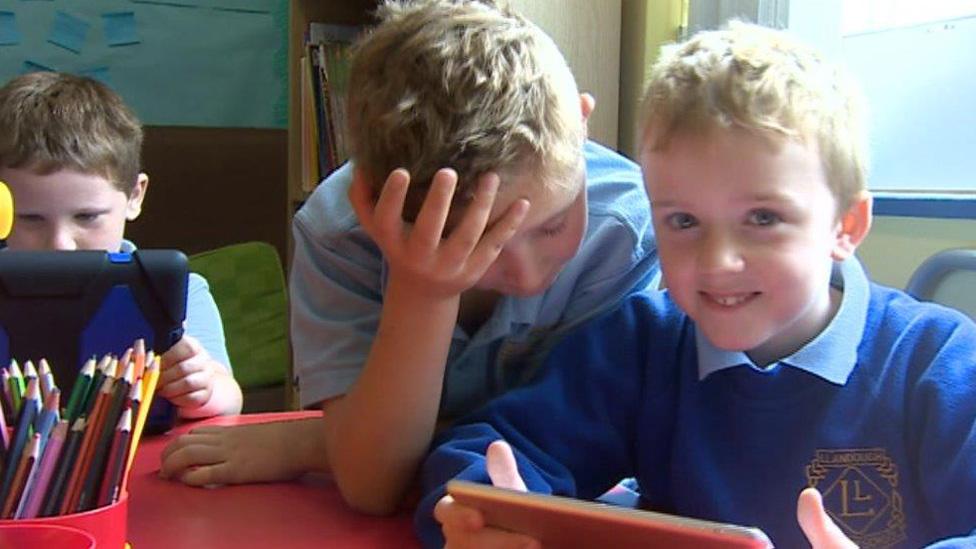
Pupils at Llandough Primary School will get a coding club from September
Maria Quevedo from the Raspberry Pi Foundation, which runs 10,000 coding clubs across 10 countries, said it was important young people became makers not just consumers.
"Every single job has an element of technology and digital in it and as time passes the world is becoming increasingly digital and technology is key," she said.
Meanwhile, 10 year old Iolo, who was busy coding during the ministerial visit, had finished programming his game.
He said it had been almost as much fun as playing computer games and he would quite like to do it as a job.
Ms Williams said she wanted "as many schools as possible" to take up the opportunity and coding in particular was a specific skill which would help Welsh children compete in the global market in future.
- Published3 December 2014

- Published25 January 2017
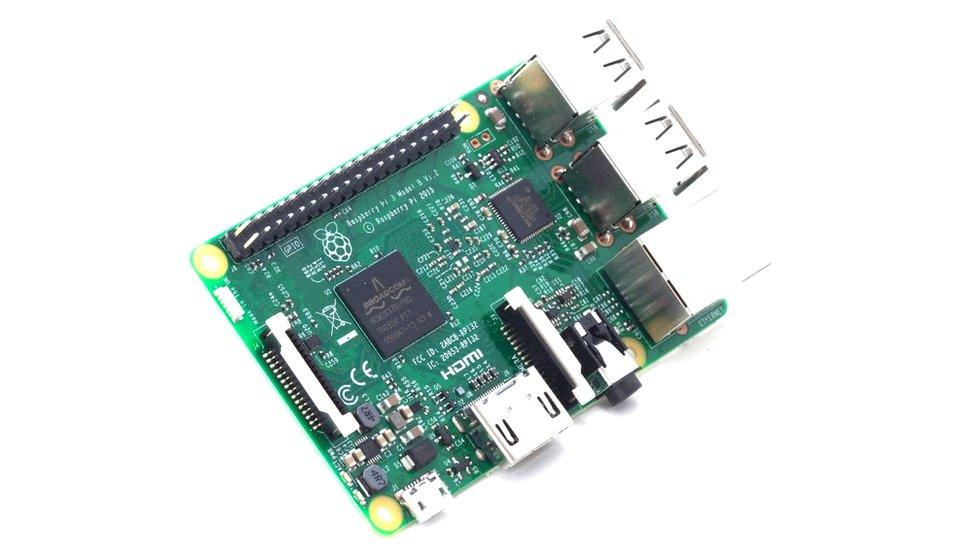
- Published8 September 2016
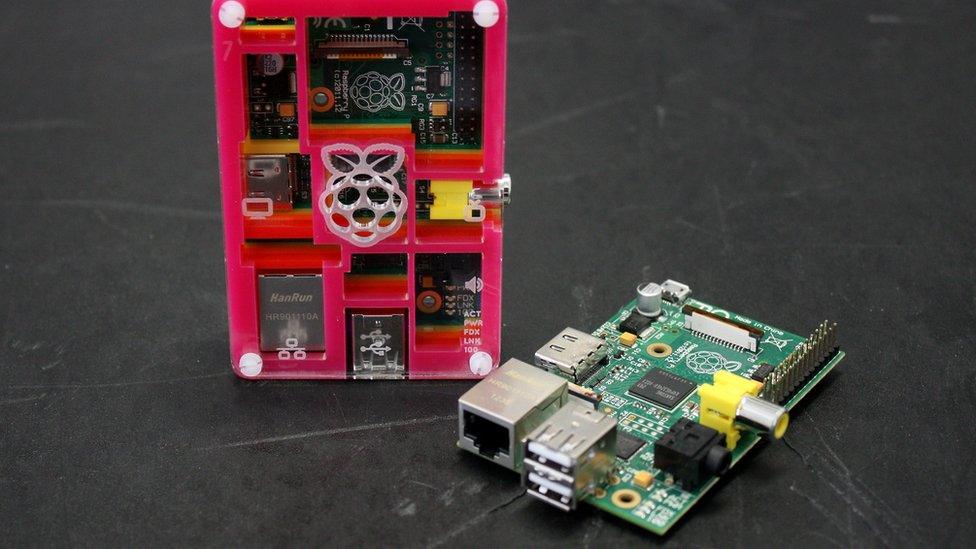
- Published3 March 2016
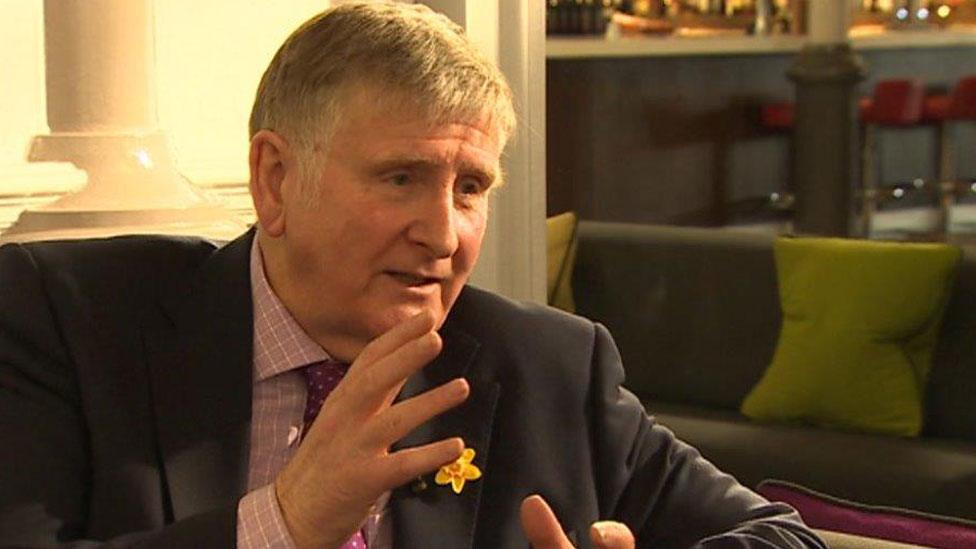
- Published15 September 2015
